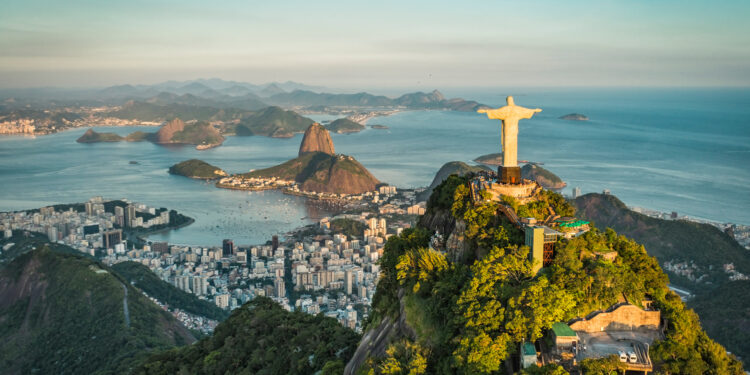On Thursday, August 22nd, Brazil announced new restrictions on the entry of migrants from certain Asian countries, aiming to prevent the country from being used as a transit point for individuals seeking to migrate to the United States and Canada. The move, which takes effect on Monday, August 26th, primarily targets migrants who require visas to remain in Brazil and have been identified as using the country as a launchpad for their northward journey.
According to Brazil’s justice ministry, the decision comes in response to a significant increase in the number of migrants arriving at São Paulo’s international airport with intentions to travel onward to North America. Federal police investigations revealed that more than 70% of the recent requests for refuge at the airport were from individuals of Indian, Nepalese, or Vietnamese nationality. These migrants often embark on a dangerous route through Brazil’s western state of Acre to reach Peru and, eventually, the U.S. southern border.
The new guidelines will require travelers from these nations who do not have visas to either continue their journey by plane or return to their country of origin. The restrictions will not apply to nearly 500 migrants currently camping at the airport or to individuals from countries that do not require visas for Brazil, such as the U.S. and many European nations.
Brazil’s federal police reported that they have already received 9,082 requests for refuge this year through mid-July, more than double the number received in all of 2023. The dramatic increase has placed significant strain on Brazil’s immigration system, which is already handling a large influx of migrants from Haiti, Syria, Afghanistan, and Ukraine. The government’s frustration has been compounded by reports of migrants using Brazil as a waystation to bypass immigration restrictions in the U.S. and Canada.
Rêmullo Diniz, coordinator of Acre state’s border police group, noted that the rise in migrants from countries like Bangladesh and Indonesia has also contributed to the burden on local authorities. Many of these migrants arrive with no documents or with fraudulent papers, raising concerns about human trafficking and other illegal activities.
Brazil has a history of welcoming refugees, but the Lula administration has tightened guidelines for humanitarian visas in response to the increasing pressures on the country’s resources. The new entry restrictions represent a significant shift in Brazil’s immigration policy, reflecting the government’s effort to address the challenges posed by irregular migration routes that impact not only Brazil but also the broader Americas region.
This policy change underscores the complexities of managing migration in a globalized world, where countries like Brazil play a pivotal role as transit points in the broader migratory patterns to North America. The implications of this decision will likely be felt across the region as governments grapple with the ongoing challenges of migration and border security.









